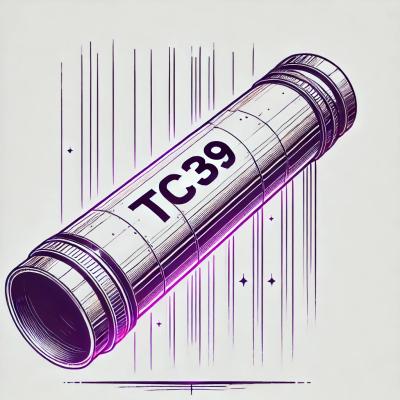
Security News
NVD Quietly Sweeps 100K+ CVEs Into a “Deferred” Black Hole
NVD now marks all pre-2018 CVEs as "Deferred," signaling it will no longer enrich older vulnerabilities, further eroding trust in its data.
In its simplest form, Guid lets you generate raw GUID formatted strings:
Guid.raw();
// -> '6fdf6ffc-ed77-94fa-407e-a7b86ed9e59d'
Let's generate a new Guid instance.
var guid = Guid.create();
We've now got an object which we can work with programmatically. Lets check the validity of our Guid using the built-in validator:
Guid.isGuid(guid);
// -> true
Guid.value;
// -> '6fdf6ffc-ed77-94fa-407e-a7b86ed9e59d'
A handy bit of functionality is that its toString method returns the string
value, so you can do handy things like this:
var itemUrl = "http://whatever.com/items/" + guid;
// -> 'http://whatever.com/items/6fdf6ffc-ed77-94fa-407e-a7b86ed9e59d'
If you need a placeholder Guid, or a value to represent a non-GUID, use the
static EMPTY property:
Guid.EMPTY;
// -> '00000000-0000-0000-0000-000000000000'
Once you have a Guid object, you can't change its value (thanks ES5!):
guid.value = "go suck it, guid!"
guid.value;
// -> '6fdf6ffc-ed77-94fa-407e-a7b86ed9e59d'
To instantiate an Guid object using an existing GUID string, use the constructor:
var guid = new Guid('6fdf6ffc-ed77-94fa-407e-a7b86ed9e59d');
You can check the equality of two different Guid objects using the equals
instance method.
Compare a Guid object to a GUID string:
guid.equals('6fdf6ffc-ed77-94fa-407e-a7b86ed9e59d');
// -> true
Compare two Guid objects:
guid.equals(new Guid('6fdf6ffc-ed77-94fa-407e-a7b86ed9e59d'));
// -> true
You can use npm to install guid: npm install guid
There's also a Uuid library which has the exact same functionality, but for UUID's: https://github.com/dandean/uuid-lib
FAQs
A Guid generator and validator.
The npm package guid receives a total of 11,394 weekly downloads. As such, guid popularity was classified as popular.
We found that guid demonstrated a not healthy version release cadence and project activity because the last version was released a year ago. It has 1 open source maintainer collaborating on the project.
Did you know?

Socket for GitHub automatically highlights issues in each pull request and monitors the health of all your open source dependencies. Discover the contents of your packages and block harmful activity before you install or update your dependencies.

Security News
NVD now marks all pre-2018 CVEs as "Deferred," signaling it will no longer enrich older vulnerabilities, further eroding trust in its data.

Research
Security News
Lazarus-linked threat actors expand their npm malware campaign with new RAT loaders, hex obfuscation, and over 5,600 downloads across 11 packages.

Security News
Safari 18.4 adds support for Iterator Helpers and two other TC39 JavaScript features, bringing full cross-browser coverage to key parts of the ECMAScript spec.